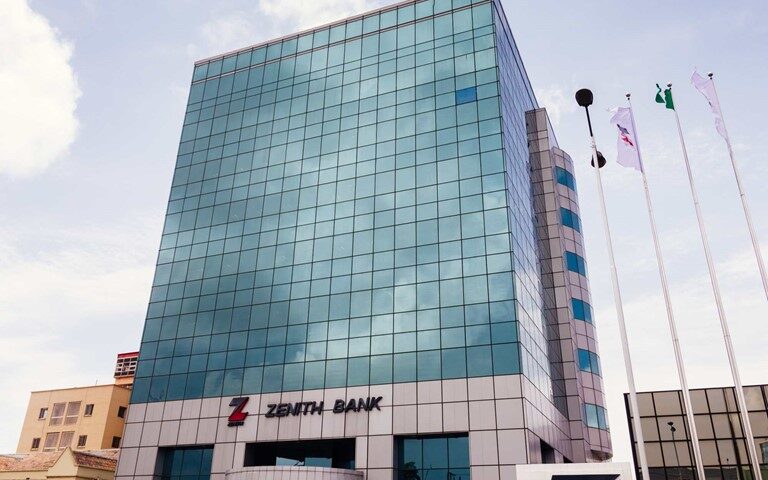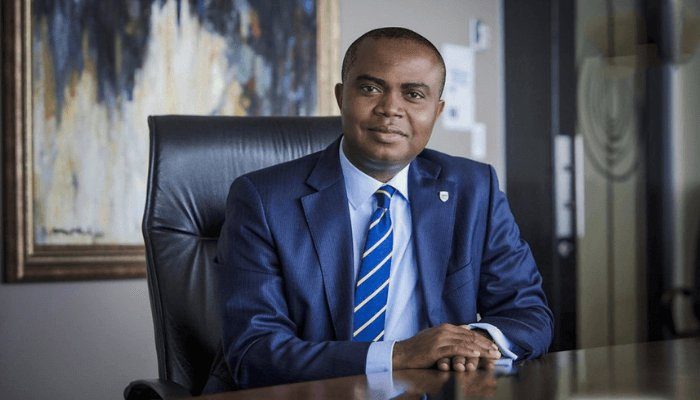Uzoma Mba
As Nigeria grapples with the dual challenges of economic growth and climate resilience, the country’s financial sector is pioneering innovative solutions that could reshape how Africa approaches sustainable development.
A quiet revolution has started at the recently concluded Stanbic IBTC Sustainable Finance Summit 2.0, held in partnership with the Lagos Business School Sustainability Centre, which offered a compelling glimpse into this transformation. The event, themed “Financing Resilience: Digital Innovation and AI for Climate Smart Communities,” brought together over one thousand participants from across Nigeria’s financial, technology, and policy sectors.
At the summit’s core was a fundamental question: How can artificial intelligence and digital innovation drive climate-smart financial solutions in communities that need them most? The answers revealed during the event were both surprising and encouraging.
Kunle Adedeji, Acting Chief Executive, Stanbic IBTC Holdings, explained, “We are witnessing the emergence of a new paradigm in sustainable finance. Traditional approaches to climate finance often struggle with scale and accessibility. AI and digital platforms are changing that equation entirely.”
The summit highlighted several breakthrough applications already being piloted in Nigeria. What emerged from the summit discussions was a vision of banking that extends far beyond traditional loan and deposit services. Financial institutions are increasingly positioning themselves as facilitators of community resilience, using technology to connect climate-vulnerable communities with appropriate financial tools and resources.
The summit featured presentation from a Nigerian company that has developed climate-focused solutions, including platforms for peer-to-peer renewable energy financing. The summit showcasethe progress made by Stanbic IBTC in Climate risk stress testing and integration of E&S risk assessment in credit decision making.
Most significantly, the summit demonstrated growing alignment between private sector innovation and regulatory policy. Representatives from Nigeria’s FMDQ and other sustainability professionals participated actively in discussions about frameworks for sustainable finance.
The summit’s policy sessions produced concrete recommendations for sustainable finance regulation in Nigeria, including proposals for climate disclosure standards and incentives for green lending.
What distinguished this summit from typical financial sector events was its consistent focus on community-level impact. The panel session explored how high-tech solutions can address grassroots climate challenges.
Tosin Leye-Odeyemi, Head, Sustainability, Stanbic IBTC Holdings Plc noted, “Technology is only valuable if it reaches the communities that need it most, These platforms are bridging the gap between sophisticated financial tools and real-world climate challenges.”
The summit’s hybrid format attracted international attention, with virtual participants from major financial institutions and development organisations across Africa, Europe, and North America. This global engagement positions Lagos as an emerging hub for sustainable finance innovation on the continent.
The success of the Sustainable Finance Summit 2.0 reflects broader trends in Nigeria’s financial sector. As the country’s economy diversifies and digital adoption accelerates, sustainable finance is emerging as a key differentiator for financial institutions.
The question is no longer whether sustainable finance will reshape Nigeria’s economy, but how quickly and effectively the country can scale these innovations to meet its climate and development challenges. Based on the evidence from the summit, the answer is faster and more comprehensive than many previously thought possible.


